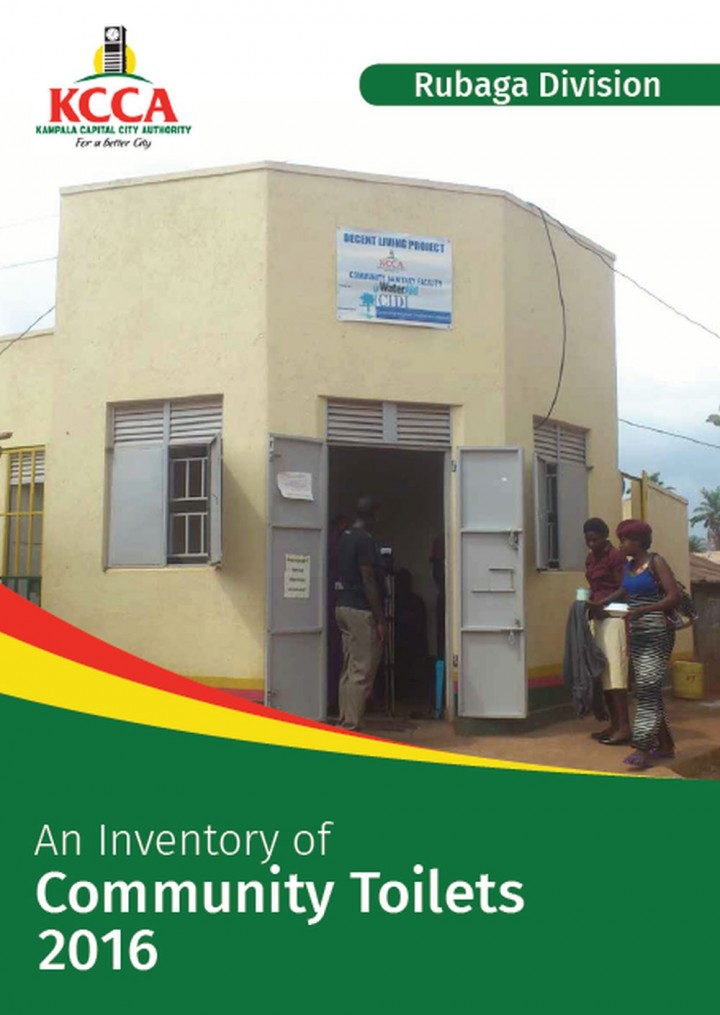An Inventory of Community Toilets 2016 Rubaga Division Kampala Capital City Authority (KCCA) (2016)
Kampala city has a population of 1.5 million people with an estimated day population of 3.5 million. On average, two million people move through the city and need to use public/community sanitation facilities.
Section 35 of the KCCA Act 2010 mandates KCCA to provide safe sanitation facilities in communities. While fulfilling this obligation, KCCA and partners have constructed about 560 sanitation facilities in communities. These facilities were sited according to demand for sanitation services, population distribution, poverty levels, nature of settlement and availability of land to mention but a few. In most cases, the funds used to construct community toilets are secured from Government of Uganda and development partners. Civil Society Organizations are the major source of funding for community toilets in Kampala followed by Government of Uganda.
Management of sanitation facilities has both software and hardware requirements. The hardware component refers to the state of the physical structure of the toilet and its appliances necessary for safe handling of human waste. The software component refers to the management of use of the facilities and the social behavioral aspects around the sanitation facility.
Section 55 of the Public Health Act 2000 requires KCC to maintain a clean and sanitary condition in the area of its jurisdiction (Kampala City). In order to fulfill this requirement, KCCA must have interest in the management of sanitation facilities in the city. The first step towards this is having an inventory of the community toilets in the city. In the period of 12th January to 16th January 2016, all community sanitation facilities in Rubaga Division were mapped and information about their management taken. The survey team also collected information about the general state of the structures of these facilities.
Bibliographic information
Kampala Capital City Authority (KCCA) (2016). An Inventory of Community Toilets 2016 Rubaga Division Kampala Capital City Authority (KCCA)
Filter / Tags
English

